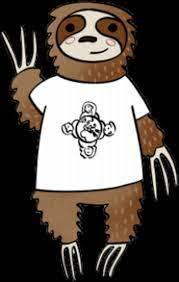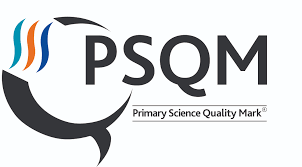Science
Subject Leader: Mrs Austin
Governor Link: Dr. Digman
At St Joseph’s Catholic Primary School, we understand the importance that science holds to our future. We foster skilful, curious scientists who develop a deep curiosity of the world and beyond and learn to appreciate and understand the world in all its fullness (John 10).
We offer an exciting, inclusive and inspiring curriculum that provides children with opportunities to question, explore and challenge scientific thinking to gain a deeper understanding of the world around us through practical investigations and enquiry.
Our Catholic Social teaching (CST) is rooted in scripture. It is out moral compass, guiding us on how to live out our faith in the world. These values are at the heart of our science learning, where exploring our values through science will create scientists who have strong morals and a desire to make the world a better place.

Sofia the sloth
( a big fan of Stewardship)
‘The Lord God took the man and put him in the garden of Eden to till it and keep it’
Genesis 2:15
Stewardship is all about caring for the many gifts that God has given to us. These include our environment, our own talents and other resources.

We are very happy to announce that we have yet again gained the Primary Science Quality Mark (PSQM). This demonstrates our commitment in embedding Science and our Science Principles across the curriculum.
Intent
The Science curriculum at St Joseph’s Catholic Primary School aims to equip all children with a strong understanding of the world around them. We provide the knowledge, skills, and scientific vocabulary they need to think scientifically, explore ideas with curiosity, and enjoy engaging, purposeful science lessons. Our curriculum helps pupils develop a secure understanding of scientific processes as well as the uses and implications of science in today’s world and in the future.
Our intention is to nurture budding scientists who care deeply for the world around them, show curiosity about what they observe and experience, and use scientific understanding to recognise the impact of human activity on the planet. Rooted in our Catholic ethos, we encourage children to appreciate their responsibility as stewards of God’s creation and to recognise how science can support positive change for the environment and society.
Implementation
Science is taught throughout the school in weekly lessons and is delivered by class teachers. We use a range of high-quality resources—including Cornerstones, the Kent Scheme of Work, STEM Explorify, and additional carefully selected materials—to support effective planning and ensure full coverage of the National Curriculum. Each unit is designed to show clear progression in substantive knowledge (the key scientific facts, concepts and vocabulary) and disciplinary knowledge (the skills of working scientifically, such as observing, questioning, predicting, analysing and evaluating).
Oracy is embedded throughout our science curriculum. Pupils are encouraged to articulate their ideas clearly, explain their thinking using scientific vocabulary, discuss predictions and outcomes, and engage confidently in scientific dialogue. Talk is used deliberately to strengthen understanding, support reasoning, and deepen conceptual knowledge.
Our science lessons follow five strands of learning:
-
Learning Intention – sharing the focus and purpose of the lesson.
-
Let’s Learn – introducing new knowledge, concepts, vocabulary, and scientific processes.
-
Let’s Discuss – developing oracy through questioning, dialogue, reasoning, and addressing misconceptions.
-
Let’s Do – engaging in practical enquiry that builds disciplinary knowledge through hands-on investigation.
-
Let’s Review – reflecting on learning, consolidating vocabulary and concepts, and evaluating understanding.
At the start of each lesson, the learning intention is shared, and pupils revisit prior knowledge through retrieval activities such as Explorify tasks, quizzes, previously taught vocabulary, and other recall strategies. Understanding is deepened through effective questioning, key concept exploration, and tackling misconceptions, again supported where appropriate by Explorify.
The majority of each lesson should involve active, practical learning. Throughout the session, pupils review their progress, reflect on their findings, and address misconceptions as they arise. Lessons offer frequent opportunities to observe and question; explore and investigate; make predictions; handle equipment safely; and plan, conduct, and evaluate scientific enquiries.
Additional high-quality resources—such as PLAN and materials from the Primary Science Teaching Trust—are used to enhance provision and ensure lessons meet the needs of all learners. Kent Science Scheme provides the most relevant scientific vocabulary, information about significant scientists linked to each topic, and practical activities that support key learning.
Where possible, lessons make meaningful links across the curriculum. Wider opportunities to foster a love of science are offered through enrichment activities such as Forest School Club and STEM Club
We are very fortunate this year to have a STEM ambassador to work alongside Keystage 1 and Keystage 2. STEM is an acronym for science, technology, engineering, and math. These four fields share an emphasis on innovation, problem-solving, and critical thinking. And together they make up a popular and fast-growing industry. Most STEM workers use computers and other technology in their day-to-day jobs. So we are creating engineers of the future!
EYFS
In Early Years, children engage in scientific activities through their study and acquirement of Understanding the World (UW). Reception pupils follow the Early Years Curriculum for UW and are assessed initially against Development Matters criteria, moving to the Early Years Profile towards the end of their Reception year. Within the curriculum, the following targets relate to Science through Understanding the World:
- To comment and ask questions about aspects of their familiar world, such as the place where they live or the natural world.
- To talk about some of the things they have observed, such as plants, animals, natural and found objects.
- To talk about why things happen and how things work.
- To develop an understanding of growth, decay and changes over time.
- To show care and concern for living things and the environment.
- To begin to be interested in and describe the texture of things
- To eat a healthy range of foodstuffs and understand a need for variety in food.
- To show some understanding that good practices with regard to exercise, eating, sleeping and hygiene can contribute to good health.
- To look closely at similarities, differences, patterns and change.
- To eat a healthy range of foodstuffs and understand a need for variety in food.
- To show some understanding that good practices with regard to exercise, eating, sleeping and hygiene can contribute to good health.
- To look closely at similarities, differences, patterns and change.
- To know the importance for good health of physical exercise, and a healthy diet, and talk about ways to keep healthy and safe.
- To know about similarities and differences in relation to places, objects, materials and living things.
- They talk about the features of their own immediate environment and how environments might vary from one another.
All of these skills and areas of learning are developed further through the year 1 curriculum.
Key Stage 1
The principal focus of science teaching in Key Stage 1 is to enable pupils to experience and observe phenomena, looking more closely at the natural and humanly-constructed world around them. During years 1 and 2, pupils should be taught to use the following practical scientific methods, processes and skills through the teaching of the programme of study content:
(disciplinary knowledge)
- Asking simple questions and recognising that they can be answered in different ways.
- Observing closely, using simple equipment.
- Performing simple tests.
- Identifying and classifying.
- Using their observations and ideas to suggest answers to questions.
- Gathering and recording data to help in answering questions.
These will be taught through the following topics:
- Plants.
- Animals including humans.
- Everyday materials.
- Seasonal changes (ongoing topic throughout the year).
- Living things and their habitats.
- Uses of everyday materials.
Lower Key Stage 2
The principal focus of science teaching in years 3 & 4 is to enable pupils to broaden their scientific view of the world around them. They should do this through:
(disciplinary knowledge)
- Setting up simple practical enquiries, comparative and fair tests.
- Making systematic and careful observations and, where appropriate, taking accurate measurements using standard units, using a range of equipment, including thermometers and data loggers.
- Gathering, recording, classifying and presenting data in a variety of ways to help in answering questions.
- Recording findings using simple scientific language, drawings, labelled diagrams, keys, bar charts, and tables.
- Reporting on findings from enquiries, including oral and written explanations, displays or presentations of results and conclusions.
- Using results to draw simple conclusions, make predictions for new values, suggest improvements and raise further questions.
- Identifying differences, similarities or changes related to simple scientific ideas and processes.
- Using straightforward scientific evidence to answer questions or to support their findings.
These will be taught through the following topics:
- Plants
- Animals including humans
- Everyday materials
- Rocks
- Light
- Forces and magnets
- Living things and their habitats
- Electricity
- Sound
- States of matter
Upper Key Stage 2
The principal focus of science teaching in upper Key Stage 2 is to enable pupils to develop a deeper understanding of a wide range of scientific ideas. They should do this through:
- Planning different types of scientific enquiries to answer questions, including recognising and controlling variables where necessary.
- Taking measurements, using a range of scientific equipment, with increasing accuracy and precision, taking repeat readings when appropriate.
- Recording data and results of increasing complexity using scientific diagrams and labels, classification keys, tables, scatter graphs, bar and line graphs.
- Using test results to make predictions to set up further comparative and fair tests.
- Reporting and presenting findings from enquiries, including conclusions, causal relationships and explanations of and degree of trust in results, in oral and written forms such as displays and other presentations.
- Identifying scientific evidence that has been used to support or refute ideas or arguments.
These will be taught through the following topics:
- Living things and their habitats
- Animals including humans
- Properties and changes of materials
- Earth and Space
- Forces
- Evolution and Inheritance
- Light
- Electricity
Teachers need to also read and apply the non-statutory guidance within the National Curriculum, to broaden the skills of the children within their class. Children will be involved in a variety of structured activities and in more open ended investigative work including:
- Activities to develop good observational skills.
- Practical activities using measuring instruments which will develop their ability to read scales accurately.
- Structured activities to develop understanding of a scientific concept and open ended investigations.
Skills progression
Progress is monitored by the SLT and Science Subject Leader through book looks to ensure consistency, progression, coverage and a balance between teacher led and practical activities and moderation amongst year groups.
At St Joseph's the children's learning is assessed using the skills progression tool on Cornerstone's where we are able to individually track the children's own progression.
Impact
As a result of our curriculum, children at St Joseph's Catholic Primary develop a genuine love of science and a strong appreciation of its relevance to their own lives and the lives of others. They demonstrate clear progression in their scientific knowledge and skills, and they understand how science contributes to society, enriching their cultural capital and broadening their perspectives.
Our teaching nurtures resourceful, independent learners who leave St Joseph’s equipped with well-developed enquiry and critical-thinking skills. They transition to secondary school with a secure foundation of scientific understanding on which to build deeper learning.
In addition, pupils develop an awareness of their responsibility to care for the environment in sustainable ways—locally, nationally, and globally. Through workshops, Science Week initiatives, and interactions with science professionals, our children are inspired and enthused, becoming confident and curious science learners who see themselves as capable scientists.

